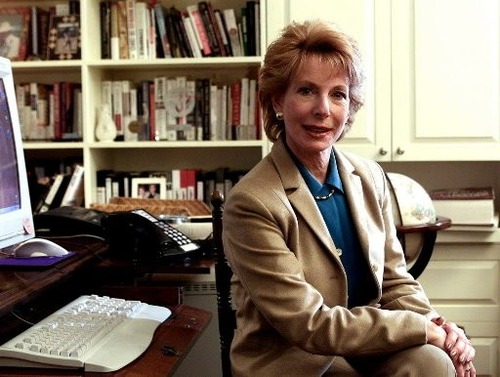Gail Sheehy wrote bestselling books about the life stages that we pass through in adulthood.
But she wasn’t prepared for the exhausting, complicated stage of caring for her second husband through four cancers. Those 17 years also included times of joy and growth.
Sheehy, who will speak in Rochester March 1 at an Alzheimer’s Association luncheon, points out that most people will eventually become caregivers for a loved one with a chronic illness. There’s a big learning curve. Without the great help she found, Sheehy says she probably would be dead by now.
“It’s just as important to take care of the health and wellbeing of the caregiver as it is to take care of the health and wellbeing of the loved one who is ill,†says Sheehy, who’s 75. Her 2010 book Passages in Caregiving: Turning Chaos into Confidence offers practical advice and includes her experiences.
David Midland, president and chief executive of the Alzheimer’s Association of Rochester and the Finger Lakes Region, says, “We chose Gail Sheehy because she truly embodies the essence of successful aging and healthy living.â€
Coincidentally, Sheehy started her journalism career in Rochester. She was fashion editor for the Democrat and Chronicle from 1961 to 1963, before writing for the New York Herald Tribune and becoming a contributing editor to New York and Vanity Fair magazines.
Husband Clay Felker was a visionary magazine editor who created New York magazine and had stints at Esquire, The Village Voice and others. When he developed his second cancer, this time lymphoma, doctors said treatment wouldn’t extend his life. They recommended the couple seize life and do something wonderful that they wouldn’t have dared to do before.
Sheehy and Felker moved to California so he could lecture at University of California, Berkeley and supervise students creating magazines, following his passion to shape young talent. He used a microphone because his speech was restricted after surgery for cancer at the base of his tongue. Sheehy continued working in Manhattan and traveled back and forth.
Serious illness doesn’t necessarily mean one downhill slide. “That lymphoma went away,†says Sheehy. “He had purpose. He had meaning.†Felker had 10 more years of active working life. He died in 2008.
Hiring a geriatric care manager, an elder care attorney and private aides, and later getting help from a palliative care team enabled Sheehy be able to work through Felker’s illnesses. In turn, he fed off her energy and enthusiasm from the new experiences she was having.
“This can be one of the most magical times of life because you realize how precious every day is,†Sheehy says.
Chris Swingle is a Rochester freelance writer.



0 Comments